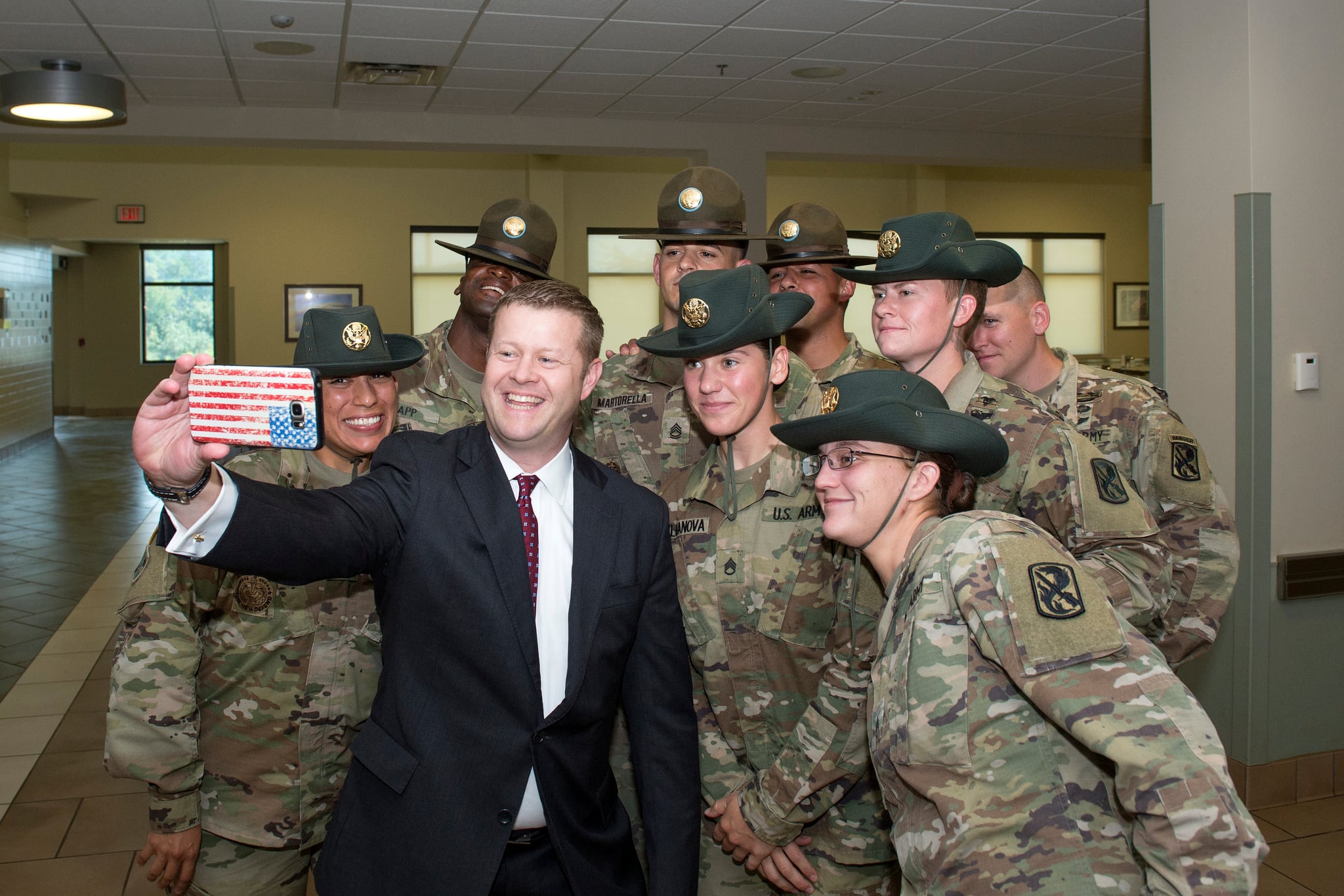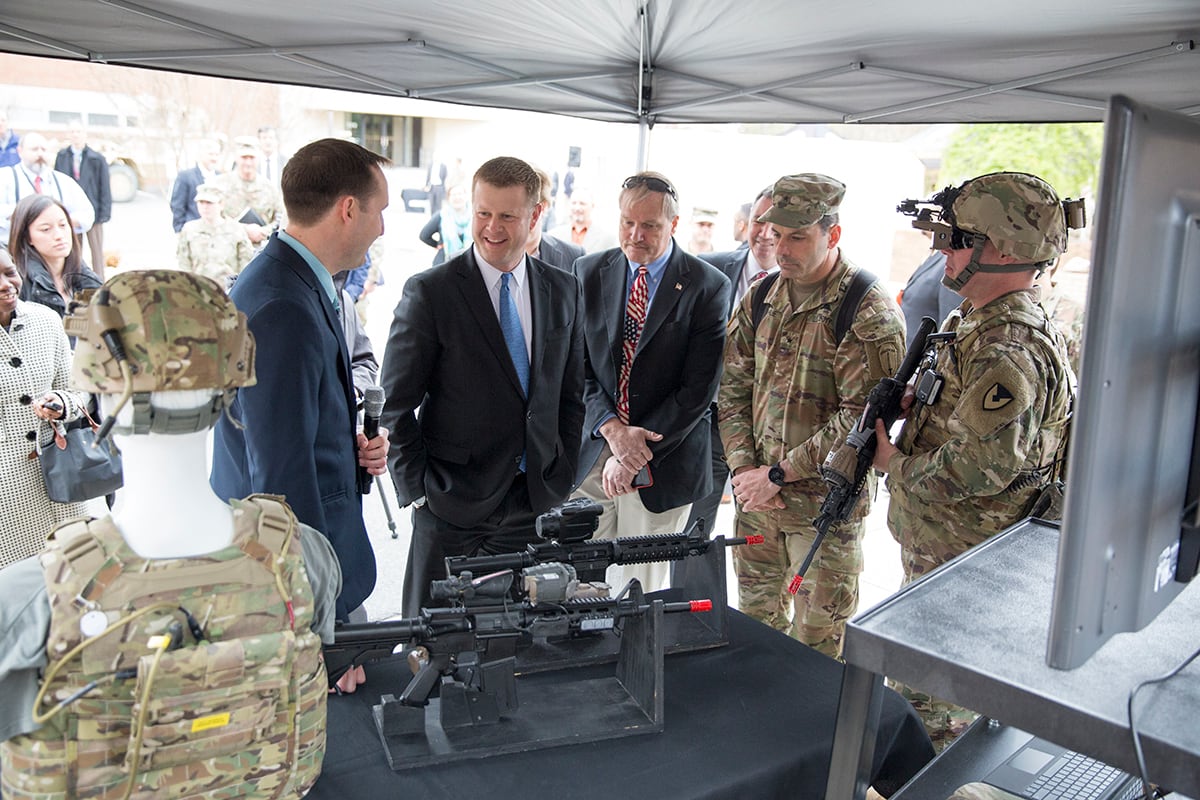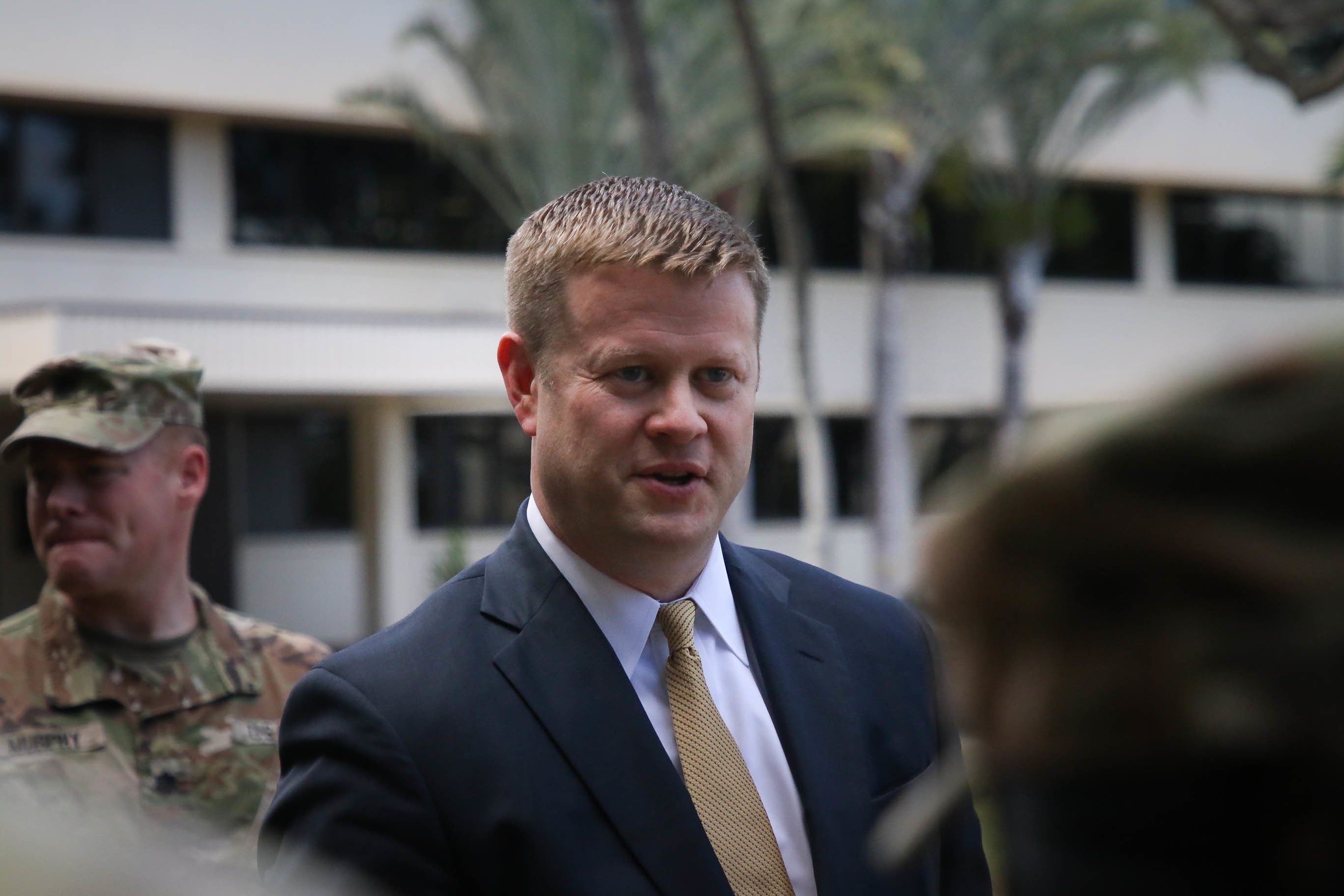Under Secretary of the Army Ryan McCarthy will likely become the acting secretary of the Army, a defense official told Army Times on background.
A veteran of the Army’s 75th Ranger Regiment, McCarthy has a mix of experience in finance, on Capitol Hill and within the defense industry.
The change comes after President Donald Trump abruptly announced that current Secretary of the Army Mark Esper is being tapped to replace Patrick Shanahan as acting defense secretary.
“We are still trying to work out the details of transition,” the defense official said. “However, Mr. McCarthy will more than likely become the Acting Secretary of the Army."
Patrick Shanahan withdrew his nomination to be confirmed as the secretary of defense this morning, sparking the shifts in Pentagon leadership during a time of escalating tensions between the United States and Iran. Shanahan’s abrupt departure came amid questions surrounding a series of domestic violence incidents that were brought to light during his background checks.
There is no word yet whether Esper will be nominated for the permanent defense secretary role. McCarthy has served in the role of acting secretary of the Army before, however, likely lessening any transition pains.
RELATED

He was unanimously confirmed by the Senate and appointed as the 33rd under secretary of the Army on Aug. 1, 2017, and then served from August to November 2017 as the acting secretary of the Army, the defense official noted.
There is also no word yet whether the president will select McCarthy to helm the Department of the Army permanently.
During his tenure as under secretary, McCarthy was on board with Esper’s modernization and readiness goals, including getting new tech to soldiers faster by streamlining acquisitions and figuring out how big the Army needs to be to satisfy its global reach.
“I think it is a simple economics equation, supply and demand. If we continue to get asked to support national objectives worldwide, we will require more people," he told Army Times in 2017. "We can’t keep the operational tempo from a year to 12 months. That is what hurts families, that is what hurts soldiers. It affects readiness.”

One of Esper’s challenges during his tenure was growing the Army to a proposed end-strength of 500,000 by 2028. The Army reported a setback in its growth plan at the end of fiscal year 2018 — missing their recruiting and retention goals and ending up with the same force it started with, roughly 476,000 soldiers.
Targeted marketing, social media campaigns and a new suite of commercials are being rolled out to recruit more troops without hurting quality, McCarthy told Army Times in March. Old tactics used during the surges in Afghanistan and Iraq involved an increase in enlistment waivers for recruit issues like misconduct and aptitude, but Esper has repeatedly said he won’t use those tactics to grow the force.
Another big push McCarthy was active in was setting up Army Futures Command in Austin, Texas,which is tasked with modernizing the service in arenas like precision fires, soldier lethality, missile defense and future vertical lift platforms.
“The technical community being closer to the war fighter is the goal,” McCarthy said when he previously held the acting secretary job.
RELATED

Esper’s rise to acting secretary of defense also marks the ascension of another defense industry insider, which sometimes comes with complications of its own.
During Shanahan’s tenure as acting defense secretary, the former Boeing executive faced an ethics complaint for allegedly slighting Lockheed Martin over its handling of the F-35 Joint Strike Fighter program, a fifth-generation stealth fighter jet often criticized for cost-overruns and delays.
Noah Bookbinder, executive director of Citizens for Responsibility and Ethics, which helped launch the ethics investigation into Shanahan, said in a statement that Esper would similarly be under scrutiny.
“The new acting Secretary of Defense, Mark Esper, is a former high level lobbyist for Raytheon, one more senior administration official with close ties to related industries; we’ll be watching to make sure appropriate safeguards are implemented,” Bookbinder said.
McCarthy has similarly held roles in a big defense firm.

Prior to being confirmed, he worked for Lockheed Martin in vice president roles responsible for aspects of the F-35 Joint Strike Fighter program and the company’s global security policy, according to his official biography.
Before that, McCarthy was a special assistant to former-Defense Secretary Robert Gates under the George W. Bush and Barrack Obama administrations and was a professional staff member in the House of Representatives. Between 2002 to 2005, he worked in commercial finance for the HongKong and Shanghai Banking Corporation.
McCarthy conducted his Army service between 1997 and 2002, deploying during the Afghanistan invasion in 2001 with 75th Ranger Regiment.
He holds a Bachelor of Arts in History from Virginia Military Institute and a Master of Business Administration degree from the University of Maryland’s Robert H. Smith School of Business.
Military Times Pentagon bureau chief Meghann Myers contributed to this report.
Kyle Rempfer was an editor and reporter who has covered combat operations, criminal cases, foreign military assistance and training accidents. Before entering journalism, Kyle served in U.S. Air Force Special Tactics and deployed in 2014 to Paktika Province, Afghanistan, and Baghdad, Iraq.




